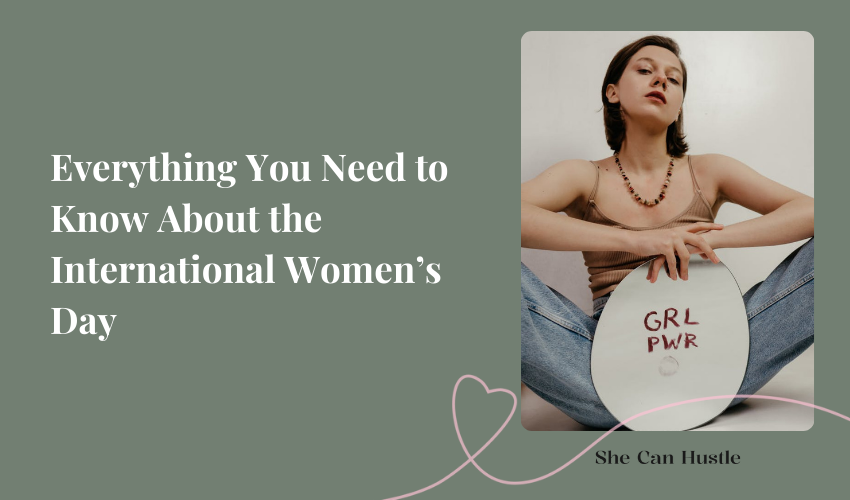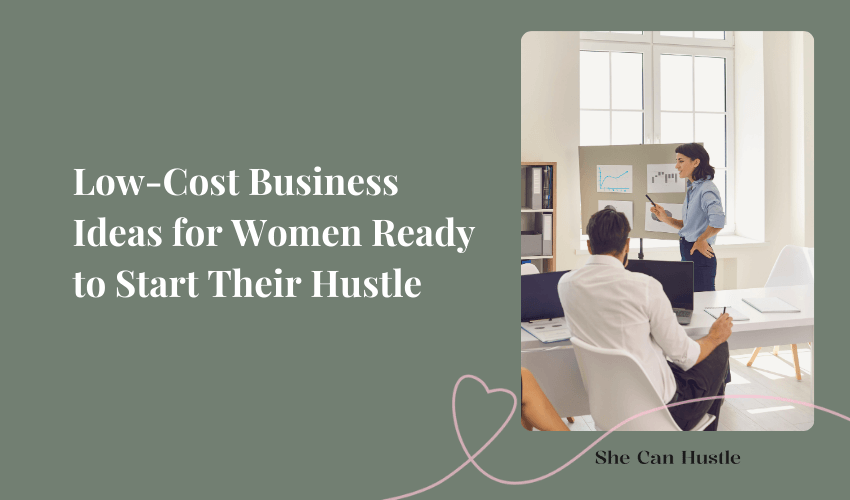Women across all walks of life should be celebrated and that’s what women’s day is all about. It is a day when women are recognized for their strength, admired for their courage and cherished for their wisdom.
In this post, we’re going to recap what it’s all about!
What is International Women’s Day (IWD)
Women’s Day was inspired by the work of suffragists, who were campaigning for more rights for women, including the right to vote. Over time, this became a day to celebrate women who’d struggled and survived the divisive factors of nationality, ethnicity, culture, language, economy and politics.
When is International Women’s Day
International Women’s Day is celebrated annually on March 8. It brings into focus issues such as gender equality, reproductive rights, and violence and abuse against women across the globe.
History of International Women’s Day
The idea of marking it as an international event came from Clara Zetkin, a women’s rights activist and a communist. She raised it at an International Conference of Working Women in Copenhagen, in 1910.
The first gathering was held in 1911.
The UN made it official in 1975. There is an extensive timeline of how women gathered numbers and protested for their rights up until March 8 th was decided unanimously as the day for holding International Women’s Day celebrations, worldwide.
Purple, green and white are the colors of International Women’s Day.
Purple stands for loyalty to the cause and signifies justice and dignity, green is a symbol of hope. White, represents purity.
The colors originated from the UK’s Women’s Social and Political Union ( WSPU) in 1908. In some countries it is observed as a public holiday but in most others, it is held as a day of activism.
Significance of International Women’s Day
Here’s why Women’s Day holds so much significance globally – especially for women entrepreneurs:
1. Promoting Gender Equality
IWD acts as a platform for many to network and interact and work towards their common goal of gender equality.
Social media has made this much easier.
Through events and seminars, meet- ups with activists, posts on the internet, debates and discussions, International Women’s Day is taken as a window to review how far women have come in their journey for equality, peace and development.
2. Raising Awareness
There is no one NGO, agency or association that decides how to go about making a difference for women by changing the society’s mindset. It’s left to each and every, big and small endeavors to suit them to their own context and circumstances.
The underlying thought is common, that of making the world a better place for women, in every which way. The ways to reach there may be different.
By marking a day for women, it’s about mobilizing, re-routing and re-grouping the ongoing efforts towards the betterment of all women, worldwide and initiating the new movements.
3. Celebrating Achievements
Highlight the importance of celebrating the social, economic, cultural, and political achievements of women.
All wins must be acknowledged and rewarded. International Women’s Day is for decorating women who have accomplished in myriad ways. It is to give them recognition, be it for their work in politics, economic sphere, cultural activities or social work.
How to participate in the International Women’s Day
Here are some ways in which you can participate in Women’s Day:
1. Participate in Events
Be an activist in the real sense of the word. Participate in online/ offline events. Share your thoughts and be vocal about what you feel, listen to others. Be part of polls, debates, writing competitions, panel discussions, to name a few.
2. Advocate for Change
Every voice matters when it comes to gender equality and supporting women’s rights. Stay in the loop of changes, keep your ears and eyes open to the changes around you.
Be vocal about how you feel, ask questions, demand answers, write blogs, read blogs, post articles and essays in the public domain, use the internet as a medium of change, show up at the rallies and demonstrations, be part of that theater group that gives voice to what others just think about. All of these are positive markers for change. Add to the list anything else you do to be a part of the movement.
3. Support Women-Owned Businesses
As more and more women start their own businesses, it is heartening to see how they are encouraged by other women in particular and a growing set of others as well who are looking at something authentic and unique coming their way.
Not just those who use their hands to make beautiful things, the same stands true for those who run agencies offering services (help here) buy local, support home-grown talent and give fledgling businesses a jumpstart.
4. Education and Awareness
International Women’s Day is about reiterating the purpose behind it. Lessons learned and those revised, staying informed and educating oneself is the way forward.
Read up and stay abreast of changes. Find every platform that you can to talk about women and their rights and their journeys. It’s true- even the walls are listening.
Historical figures who have made significant contributions to women’s rights
Here are some of the women people across the world look up to:
1. Susan B. Anthony (1820-1906)
Susan’s efforts were instrumental in the eventual passage of the 19th Amendment to the US Constitution, which granted women the right to vote in 1920.
She was a key figure in the women’s suffrage movement in the United States. Susan co-founded the National Woman Suffrage Association (NWSA) and remains to this day one of the torchbearers of the fight for women’s equality.
2. Emmeline Pankhurst (1858-1928)
The founder of Women’s Social and Political Union (WSPU), which used militant tactics to draw attention to the cause of women’s suffrage, Emmeline Pankhurst’s bold actions and unwavering commitment have inspired countless activists and movements around the world.
Her relentless campaigning was crucial in securing voting rights for women in the United Kingdom.
3. Sojourner Truth (1797-1883)
Best known for her powerful “Ain’t I a woman?” in a speech delivered at the Ohio Women’s Rights Convention in 1851, Sojourner Truth, an African American abolitionist and women’s rights activist, worked tirelessly to address both racial and gender inequalities.
She advocated for the rights of African American women. Her work laid the groundwork for future civil rights and women’s rights movements, highlighting the interconnectedness of racial and gender justice.
4. Simone de Beauvoir (1908-1986)
Her seminal work “The Second Sex,” published in 1949, is considered a foundational text of contemporary feminism.
Simone de Beauvoir, a French writer, intellectual, and existentialist philosopher, encouraged women to challenge societal norms and seek equality. Her book explores the oppression of women and her ideas have had a deeply influenced feminist theory and activism.
5. Malala Yousafzai (1997-Present)
The youngest-ever Nobel Prize laureate and a Pakistani activist for female education, Malala survived an assassination attempt by the Taliban in 2012.
She continues to advocate for girls’ education worldwide through the Malala Fund. Her courage and determination have brought global attention to the importance of education for girls and the struggle for their rights in regions where they are most threatened.
6. Ruth Bader Ginsburg (1933-2020)
Ruth Bader Ginsburg Championed gender equality and women’s rights throughout her career as a U. S. Supreme Court Justice.
Before joining the Supreme Court, she co-founded the Women’s Rights Project at the American Civil Liberties Union (ACLU) and argued several landmark cases on gender discrimination before the court. Her legal work and judicial opinions still hold a lot of water and have significantly advanced the cause of women’s rights.
7. Gloria Steinem (1934-Present)
Gloria Steinem co-founded “Ms.” magazine and has been a prominent advocate for women’s rights since the 1960’s. Her activism spans issues such as reproductive rights, workplace equality, and domestic violence.
Her contributions to feminism and her role as a public intellectual have made her a lasting symbol of the movement for gender equality.
Conclusion
Gloria Steinem, world-renowned feminist, journalist and activist said, “The story of women’s struggle for equality belongs to no single feminist, nor to any one organization, but to the collective efforts of all who care about human rights.”
Supporting IWD is not about what action is best or right. It’s about being truly ‘inclusive’ and appreciating all efforts advancing women’s equality.
In this spirit, there is room for everyone to fight the good fight. Join hands and in actions, big and small, celebrate womanhood in any way that is relevant and meaningful to your own context and circumstances.
Like the blog? Don’t forget to subscribe for more!


